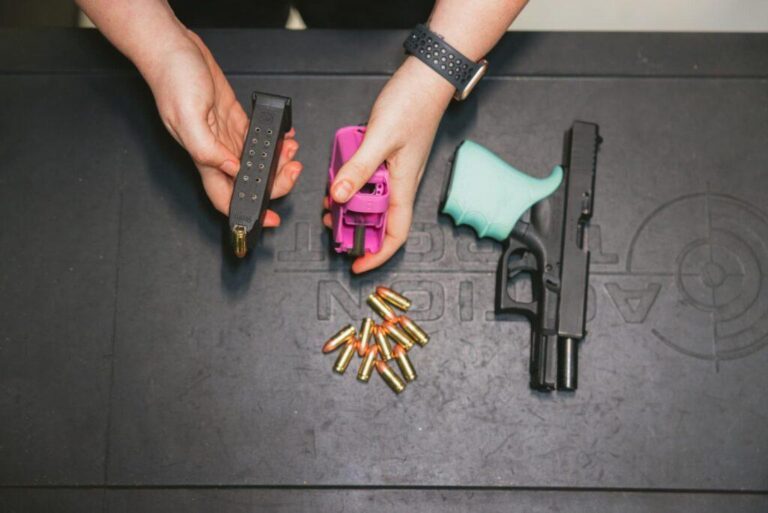Table of Contents
- Understanding Reciprocity Rules for Stun Gun Permits Across State Lines
- Key Factors Affecting the Validity of Stun Gun Permits in Different States
- Navigating Legal Challenges When Carrying Stun Guns Outside Your Home State
- Practical Recommendations for Ensuring Compliance with Stun Gun Reciprocity Laws
- Closing Remarks
Understanding Reciprocity Rules for Stun Gun Permits Across State Lines
When it comes to stun gun permits, the landscape is far from uniform across the United States. Each state has its own set of laws regulating possession, carry, and permit issuance, making it crucial for permit holders to understand whether their authorization will be respected beyond their home state’s borders. Unlike concealed carry permits for firearms, stun gun permits often lack comprehensive reciprocity agreements, so travelers should proceed with caution. It is essential to consult state-specific statutes or authoritative state websites before crossing state lines with a stun gun in tow.
Key factors that influence reciprocity for stun gun permits include:
- State definitions: Some states classify stun guns differently, categorizing them as prohibited weapons.
- Permit recognition: Even where permits exist, many states do not recognize out-of-state authorizations.
- Local enforcement policies: Enforcement can vary widely, and local jurisdictions may have stricter rules.
Given these complexities, the safest approach is to verify local laws in all states you plan to visit. Carrying a stun gun without proper authorization can lead to significant legal consequences, so awareness and preparation are paramount.
Key Factors Affecting the Validity of Stun Gun Permits in Different States
When navigating the complex landscape of stun gun permit validity, several pivotal aspects come into play. State-specific legislation largely dictates whether permits issued in one jurisdiction will be honored elsewhere. Some states have explicit reciprocity agreements, allowing stun gun permits to be recognized across state lines, whereas others impose strict prohibitions or require separate applications regardless of existing permits. Additionally, the classification of stun guns-whether they fall under concealed carry laws or fall under weapon prohibitions-can vary and influence permit acceptance significantly.
Other factors influencing permit validity include:
- Duration and Renewal Requirements: States differ on how long a permit is valid and the renewal process, affecting ongoing reciprocity.
- Age and Eligibility Criteria: Minimum age limits and background check stringency can affect cross-state permit recognitions.
- Local Enforcement Discretion: Even in states with reciprocity, enforcement officers may apply regulations differently, impacting practical validity.
Navigating Legal Challenges When Carrying Stun Guns Outside Your Home State
When venturing outside your home state with a stun gun, it’s essential to understand that legal protections and permit recognition can vary significantly. Unlike firearms, which have some level of federal reciprocity in certain states, stun gun permits do not enjoy uniform acceptance nationwide. Many states have their unique regulations concerning possession, carry, and use, ranging from outright bans to requiring specific permits. The lack of a standardized framework means you could unknowingly be violating laws, potentially facing fines, confiscation, or even criminal charges.
To minimize legal risks, consider these key steps before you travel:
- Research State Laws: Check the current legal status of stun guns in both your home state and the destination, focusing on any permit requirements or restrictions.
- Confirm Reciprocity: Verify if your permit is recognized by the state you plan to visit, as some states honor permits issued elsewhere, while others do not.
- Understand Usage Rules: Learn about conditions under which use is allowed or prohibited, including restrictions on carrying in certain public places.
- Carry Documentation: Always carry your stun gun permit and any relevant paperwork to demonstrate lawful possession if questioned by authorities.
Practical Recommendations for Ensuring Compliance with Stun Gun Reciprocity Laws
Before carrying a stun gun across state lines, it’s crucial to conduct thorough research to understand the legal nuances and reciprocity agreements that may affect your permit’s validity. Since stun gun laws vary widely-from strict prohibitions to permissive statutes-review official state government websites or consult with a legal expert specializing in firearms or self-defense laws. Maintain a copy of your permit along with any documentation proving its reciprocity status in the state you plan to visit. Ignoring these steps could lead to severe legal repercussions, including confiscation or fines.
When traveling, always abide by these practical measures to ensure lawful possession:
- Verify each state’s stance on stun guns, focusing on restrictions, permit requirements, and exceptions.
- Register or declare your stun gun if required by local regulations.
- Keep stun guns stored securely and accessible only when necessary, respecting local carry laws.
- Regularly check for updates or legislative changes that might impact reciprocity and possession rights.
Closing Remarks
In navigating the complex landscape of stun gun permits, understanding reciprocity rules is essential for anyone considering carrying these devices across state lines. While some states honor permits issued elsewhere, many do not, creating a patchwork of regulations that can easily trip up unwary travelers. Staying informed and double-checking the specific laws of each state before you travel is the best way to ensure you remain compliant and avoid legal pitfalls. Ultimately, knowing where your stun gun permit is valid empowers you to protect yourself responsibly, no matter where the road takes you.Check Our Other Blogs
- StunGun – Your Trusted Source for Stun Guns, Laws, and Self-Defense Tips
- PepperSprayLaws – Your Trusted Resource for Pepper Spray Information
- StunGunLaws – Your Trusted Guide to Stun Gun Legality and Safety





